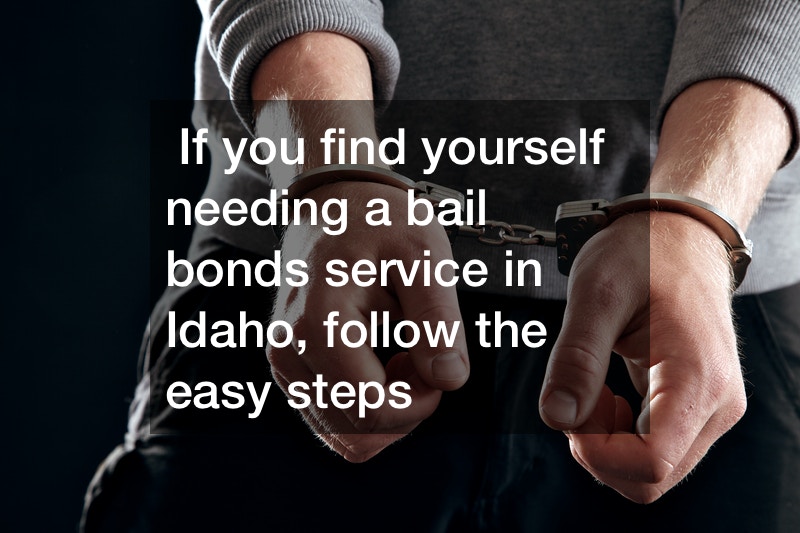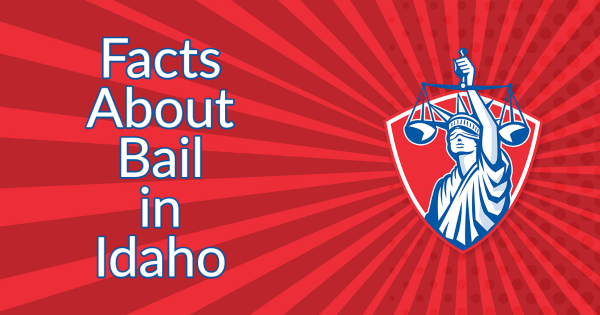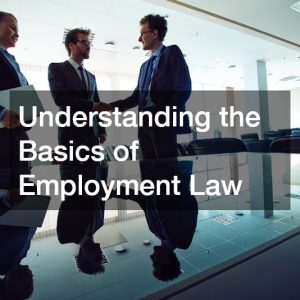
Different states may have some variations when it comes to bail bond, and this is why you need to do thorough research if you ever need to post bail. This is either for yourself or for someone else, and it can help make the process a lot more bearable.

Start by looking for details about bail bonds for low income families and also making searches like “can you bail out on weekends?” You should also search online for things such as “how long after bond is posted are you released?” and “what do you need to bail someone out of jail?” In the results, you’ll find some valuable information and you could also come across professionals offering their services.
The more you know about the process, the more beneficial it can be for you. This is why it’s a good idea to learn about it and see if it’s possible to save some time and money in the process. Whether you’re the one who needs this information or it’s for helping a friend or family member, you’ll make the best call if you can learn about it. While you may work with an expert, having some knowledge of the matter might help you find a good professional a lot more easily.

Whether you need to post bail or you’re just curious about how bail works, it’s always good to learn about it. You may benefit from finding a good bail bond company if you need the services of one. To this end, search online for something like “what is bond surrender?” and have a look at the results. You may find a bail bond company or two listed in the results.

Read the reviews left for their services, if any, so that you can get an idea of the efficiency of the company you find before you commit to working with it. You may also want to know what things like non arrest bond or no arrest bond mean. A search online will give you the results, but a bail bond professional may be able to give you a better idea of what it is.
The professional could also answer questions like “how much is a non arrest bond?” This is going to prove beneficial for you both now and in the future, since you never know when you may need this information. It’s important for you to know the potential costs so that there’s a lower chance of getting ripped off.

Bail for misdemeanor arrest or felony arrest is often determined during your first hearing. The judge or magistrate will set a “bail bond” based on your risk of flight and the crime you have been accused of. It can be very scary to be incarcerated. Luckily, a 24/7 emergency bail bond agent can get you out of jail day or night. A bail bondsman for failure to appear charges also can get you out of jail if you miss a court date and a warrant has been issued.
Bail posted meaning is that you have “made bail” and are on your way home. If you have been arrested and bail has been set, those magic words “bail posted” will be some of the happiest words you have ever heard.
Of course, there are some caveats that go along with a bail bond. Remember, a bail bond is applied to ensure you return to court for your hearings and trial. You will find those caveats, like if there is a curfew for you or what you must do if you move on your bail review summary. There are a few other things you need to know about bail and how it works. Keep reading to learn more.
Updated 4/5/22
You would never like to land in jail, even in an arrest scenario, thus opt to be released on bail. As an accused, you need to pay some money or deposit some of your property as a guarantee that you will be present in court on the trial date, which is the bail jail definition. If you fail to appear in court on the trial date, the court will withhold your bond and give a warrant of arrest. Bail is provided for under the sixth amendment for any interested accused person. If you cannot cater to the bail cost, you will be in custody until the court makes the final verdict.
Bail prices for crimes vary depending on personal status, nature of the offense, the threat of the accused person to the public, your community roots, past criminal history, and previous court appearances. Bail law enforcement officers go after accused people who fail to appear in court on the trial date. The enforcement officers usually work in offices but can also act as detectives by investigating the whereabouts of the accused person who disappears after a bond is issued to them. Suspects released on bail should be ready to comply with the terms and conditions for the release, and if violated, bail revocation will happen, thus leading to the detention of the suspect.
Bail is a term that may not be familiar to many people. Bail is a type of bail that does not require the person to be present. It is granted by the judge or magistrate, who may grant it before or during the trial. The court may also grant bail during a trial hearing for a certain bail in a nonbailable offense. Bail would come in handy when someone has missed their trial date, and they are about to get arrested for failing to appear in court for their trial date.
Bail can help with many situations, but it should not be used as a replacement for traditional bail bondsman services. It is usually the responsibility of the bail bondsman to post bail for the person who was arrested. The bail extended means it is paid, and the person who was or is about to be arrested will be released by their trial date.
The bail bondsman service is available in all states in America. If a person does not have enough funds to pay for their bail, they can get a bond from a bail bondsman company. The bail bondsman service is helpful, especially for people on trial and awaiting their bail hearing cases. It is a system that will monitor the defendants on bail to make sure they are not fleeing or committing any offense.
Getting bail is a guaranteed way to get out of jail, although temporarily. If you don’t have funds, it may not be possible to get released. There are factors to be considered to qualify for bail, such as the type of crime, among others. If you are eligible for bail and financially down, look for a bail bonds agent and apply for bail.

Past criminal records can determine if you will be given or denied bail. The court can also deny bail to the accused if there’s a likelihood of jumping bail or causing harm to the citizen. It is important to understand such laws and the application to revoke bail from your lawyer. In some instances, the court can prohibit a person released on bail from leaving the country. Also, if you are released out of jail, you should attend the court hearing and adhere to all agreements failure to which you may be re-arrested. If you want more information on the bail and jail process, consult your lawyer.
On the other hand, it’s best to seek bail cash or bond from a reputable agent. Find out if they are trustworthy and financially able to grant you bail services. An agent should also professionally handle bail arguments and ensure every party is satisfied.
Bail can come in very handy for someone who doesn’t want to stay in jail. Unfortunately, not everyone can afford bail. The price is determined by the judge and a number of factors determine it such as the crime supposedly committed, past criminal record, and if the defendant is employed. Additionally, bail is actually very useful in that it simply allows for a temporary release of the person from jail, on the condition that they appear in court when they are supposed to do so.

If you want to learn more about bail, there are many great resources out there. For example, you can talk to an attorney who has a lot of experience in this area. Alternatively, you can talk to one of the bail bondsmen in your area. Because these people have a lot of experience with bail and bail bonds, they can tell you things that you might want to know about how it works. For example, they might be able to tell you how to find out if someone is still in jail. They can also explain the exact relationship between bail and jail, bail arguments, and the bail bond interest rate. It might come in handy to know this information if you or a loved one ever needs to be bailed out of jail.
Despite being an obedient citizen, you must face one or two legal charges in court. In most cases, you are unprepared when such a scenario happens. Regardless of the legal issues facing you, securing your freedom is vital. There are bail bonding services for that purpose.
The bail man helps you buy your freedom. The professional participates in the process required to bail you out bonding. Bonding services should have traits to guarantee convenient services. The bail bonding agent should have experience and knowledge concerning the legal issue you are facing.

On top of that, the professional should have a financial backup. Ensure that the bailbonding services are from an agent who follows up on your case: the bail man should be readily available to handle your legal issues. How long after bond is posted are you released? Once the court grants you bail, you have your freedom. You are free after the bond is posted.
The bail granted is determined by your flight risk and community connections. It is also dependent on your family’s obligation, income, and assets, as well as the seriousness of the crime. The court looks at the safety of the public before granting you bail. The court accepts the bail-in cash, and if you are unable to raise the money, someone acts as surety by paying on your behalf.
One of the duties of bail bond agents is to organize bail for defendants who cannot raise the money on their own. Bail bond agents will usually charge a 10% fee of the bail amount, which defendants have to pay upfront. The agents also have to follow up with defendants if they fail to show up in court. If more time is needed for investigations, then an individual can be put on a bail extended meaning, the applicable bail period of 28 days has been extended to 3 months with the court’s authorization.
Bail hearing cases are usually held 24 to 28 hrs after someone has been arrested. The judge has to consider certain factors like if you pose a danger to your community, whether you will show up for trial on the set date, and if you might commit other crimes. In bail hearing arguments, your attorney must defend you well so that the judge agrees to let you go. There are some serious cases like murder, rape, and kidnapping that are non bailable. However, the court has the power to grant bail in non bailable offence if they see it fit. The defendant’s attorney should present an argument showing that granting bail will in no way affect the trial process.
If a police officer arrests you for a criminal offense, they’ll take you into custody and later transfer you to jail to process your case. The police will place you behind bars if they press charges against you. But you may walk out of the criminal processing facility if the police don’t press charges. What happens next if the former happens?
Bail and Jail
According to the Eighth Constitutional Amendment Act in the U.S., an arrestee or a criminal defendant has the right to bail. It means that you can avoid imprisonment after the arrest when you satisfy the justice system’s requirements, such as posting bail; paying a sum of money as surety for your release.
Bail During Trial
During your first bail hearing, the court will determine how much bail you must pay, considering several factors:
- Flight Risk
- Community Connections
- Family Obligation
- Income and Assets
- Criminal and Court History
- Crime Seriousness
- Public Safety
Bail Cash or Bond

The criminal defendant or arrestee may pay cash after the court has determined the bail cost. But if they cannot raise the required amount, someone else may act as surety by paying for the defendant, and a bonds agent can step in to fulfill this role by arranging for a bond.
Bail Bond Agents
Bail bond agents, a bond agent, or a bond dealer can be any agency, a person, or a corporation that pledges money or property to the court on your behalf. Because of this, they’ll charge you a 10 % fee in addition to the bail amount. When you pay the bail bond, either yourself or through a bond agent, you’re assuring the court that you’ll attend all trial proceedings.

Arrested While Out On Bail
You must attend all the court sessions as you promised through your bail payment. If you miss one or some of your court appearances, the judge will issue an arrest warrant. You can be arrested while you’re out on bail if you break your bail conditions.
If you live in Idaho and have learned as much as you can about bail judgments and have decided that this line of work intrigues you, then you have a few options. In order to become a bail bondsman in Idaho, you will need to follow state guidelines. This includes covering all necessary fees, passing a surety exam, providing valid insurance, and being backed by a reputable surety company. You can start attending bail hearing arguments so that you understand how bail hearing cases are handled. It’s also a good idea to learn how bail during a trial works.
Another essential part of becoming a bail bondsman in Idaho is understanding what types of bail bonds are normally written. While all types of bail bonds work in the same way, some bonds have specific stipulations that pertain to the charges pressed against the suspect. Assault bail bonds may require that the suspect not associate with specific individuals, while a weapons bail bond may require that the suspect turnover all of the weapons in their possession to local law enforcement until their trial is over.
How many facts about bail in Idaho do you know? If you’re like most people, chances are, not many. But maybe you’ve recently learned that an arrest warrant has been issued for you or someone you love. Perhaps you’ve been investigated recently, and you suspect it may only be a matter of time before a warrant is issued. One way or another, if you feel that the facts about bail in your state may become relevant to you soon, you’ve come to the right place.
Facts About Bail: What Happens When You Get Arrested

Just what does it mean when a warrant is issued for your arrest in Idaho? Basically, it means that a county judge has ordered local law enforcement to place you under arrest, in the custody of the county jail, then bring you before the court for trial. Of course, you may not simply be arrested — it’s also possible for the court issue a summons, meaning you’re ordered to come to court on your own. But if you end up facing jail time leading up to a trial, you will naturally want to know what your options are for getting out.
To learn more facts about bail and the judiciary process as it applies to defendants, keep reading this article on our top eight facts about bail-in Idaho.
Bail is a Constitutional Right
The Eighth Amendment of the Constitution of the United States guarantees defendants the right to bail at a reasonable cost. It also prohibits the use of cruel and unusual punishments against prisoners.
The Eighth Amendment is important because it ensures that those who have been arrested will be given the opportunity to bail themselves out at a cost that’s reasonable given their accusation, and probably within a range they can afford. Even if you get a bond from a bail bond agency, you still have to pay the bonds agent a percentage of the total bail cost (usually 10%), and that’s not refundable. So a reasonable or low-cost bail is helpful.
In 1984, Congress updated the Eighth Amendment with the Bail Reform Act, which allows defendants to be detained before their trial if they’re considered a danger to the community. If you’ve been accused of a serious crime, such as one involving misuse of firearms, or if it’s reasonably suspected that you may flee the area rather than stand trial, you may not be allowed to post bail. Fortunately, such instances are rare, and probably won’t apply to you.

When it comes to facts about bail, the important thing to note here is that the opportunity to post bail, at a price reasonable giving your accusation, is your constitutional right.
There are Four Ways to Get Out of Jail
There are four ways to get out of jail while you wait for your trial: cash bond, surety bond, property bond, and Own Recognizance (OR). As you’ll see, they don’t all involve posting bail. Here we’ll discuss the differences between these four options.
First of all, a cash bond is used when you bail yourself out using money you have on hand. Whether or not this is an option for you will depend on the amount of the bail and how much money you have available. A cash bond is most common for misdemeanor crimes, where the bail amount might be anywhere from $500 to $1,000. If you or a friend or family member can pay this amount in cash, you’ll avoid the fees that bail bonds companies charge. However, for more serious crimes, this probably won’t be a practical option, as something like drug possession bail can be upwards of thousands of dollars.
Second, there’s a surety bond, which is available through a bail bonds agent or company. Bail bonds agents are regulated by the state and required to have insurance licenses. When the amount of bail set for you is more than you can pay in cash, you can hire a bail bonds agent to guarantee the bail amount to the court. You must pay a percentage of the total bail to the bonds agency in the form of a non-refundable fee. In Idaho, this amount is usually 10% of the total bail amount. So by paying just 10% of your bail to the bondsman, it’s possible to get out of jail.
Next on our list is the property bond. This option is typically reserved for higher bail amounts, where you or a relative may put up a car, home, or another piece of property in place of a monetary bail. You’ll need a promissory note equal to the assessed value of whatever property being issued. If you’re still making payments on the property, you must have enough equity in it to cover the bail, in addition to court fees and attorney costs.

Your fourth and final option for getting out of jail is somewhat unique to the state of Idaho: Own Recognizance, or OR. Under Idaho’s Bail Act, judges are permitted to release a defendant on their own recognizance. In other words, the judge might simply let you go, trusting you to return to court when summoned without first posting bail. The judge will consider various criteria before making this kind of decision, such as your reputation, the number and strength of your ties to the area, and your criminal record. Basically, they will determine how likely you are to return to court when ordered. As you can imagine, this is only a realistic option when you’ve been accused of a small misdemeanor.
While the options available to you will be partly decided by the court, these are the four ways that people can get out of jail while awaiting trial in Idaho. Next, we’ll discuss how to go about getting bail, whether with your own cash or with fast bail bonds.
How to Get Bail
There are a couple of different ways that you can get bail in Idaho. The first and simplest option is if you have the cash on hand to pay the entire bail amount. This is typically the fastest way to get out of jail. If you don’t have the money you need yourself, anyone you know over the age of 18 is also permitted to post bail for you. After you’ve shown up for all court hearings and your trial has ended, the bail will be returned to the person who posted it, minus any surcharges or fees. Many courts will accept credit cards as well as cash. The option to post bail in this manner is usually offered after the defendant has been fingerprinted and processed in jail.

If you or your family simply doesn’t have enough cash on hand to cover bail, you’ll be allowed to call an attorney or bail bond service. Numbers for local bail bonds agencies are often available in county jails. In Idaho, bail bonds agents usually charge 10% of the bail amount as a standard, non-refundable fee. That means that if your bail is set at $5,000, you would need to pay $500 for a surety bond to cover it. Bail bond companies have relationships with insurance companies that guarantee payment of the full bail amount to the court in the event that defendants miss scheduled hearings. If that happens to you, whoever signed for the surety bond — most likely yourself — will owe the entire bail amount to the bonds agent.
While these facts about bail may not always seem straightforward, in reality, it’s rather simple. But you’re probably wondering how the cost of bail is determined in an Idaho court. We’ll examine that topic next.
How the Cost of Bail is Determined
During your first court appearance after arrest, a judge will decide whether or not to let you go, and on what bail. The judge might hear arguments from the state prosecuting attorney or criminal defense attorneys to make their decision. During this hearing, the judge will have two primary concerns: first, are you a flight risk? And second, are you a risk to the community?
If the judge feels you are a flight risk, it means that they suspect you may miss your next court date, or skip town and run away altogether, if the court releases you. If you don’t have friends, family, or a job in the local area, it’s more likely for the judge to suspect you to be a flight risk, since there will be less compelling you to stay.

Secondly, the judge might feel that you’re a danger to the community if the crime you were charged with was a violent one, or if you had a criminal record of violence already. Or, if you have a known alcohol addiction and a record of DUIs, it may not be safe to simply let you go. To the judge, either of those could be an indication that you may cause harm to others while you await your trial.
If the judge believes you are a flight risk, they will set a much higher bail amount. Otherwise, if you have significant ties to the community through family or job history, the bail could be lower. If the judge believes you might cause violence upon release, they will charge a much higher bail amount, or they may not give you the option to post bail at all. However, if the judge feels that the conduct you’re accused of was an isolated incident, even if it is proven true, they will be more comfortable releasing you.
Once again, the law in Idaho allows a judge to release a defendant on their own recognizance (OR). If the judge makes this decision for you, you won’t have to post bail at all to leave jail and be with your family while you await trial.
How Long You Could Stay in Jail

More important facts about bail involve the jail time you’ll have even after getting the opportunity to post bail. Your wait to be released on bail will depend on the crime you were charged with. For common misdemeanors, there are predetermined bail schedules, which means that you could find out immediately how much it will cost to post bail. If you were charged with one of these common misdemeanors, and if you have the necessary money on you already, it might only be a few hours between getting arrested and being offered the chance to post bail.
If your crime is a more serious misdemeanor or felony, your bail won’t be set before an arraignment is held. According to Idaho law, offenders are guaranteed an appearance between a judge within 48 hours of their arrest. Generally speaking, this might turn out to be only around 24 hours. So if you’re arrested, the amount of time you’ll spend in jail before posting bail could be anywhere from a couple of hours to two days.

Why You Might Choose to Stay in Jail
Even if you’ve been before a judge and granted the opportunity to hire a bail bond company, there are sometimes benefits to choosing to stay in jail instead of leaving on bail. If you know you are guilty for the crime you’ve been charged with, serving time in jail now could cause the judge to give you a softer sentence at your trial. When a defendant has already spent several hours or days in jail awaiting their court appearance, judges are more likely to pass sentences involving community services instead of more jail time. It’s literally like getting your jail sentence out of the way ahead of time.
While this is one of those facts about bail that won’t apply to everyone, it can be helpful to weigh the benefits of being released against the benefit of receiving credit for your time served in jail now.
What Happens if You Miss a Court Appearance
After posting bail, you’re free to do whatever you like until called back to court. But what happens if you miss a court appearance while out on bail?
Missing an appearance automatically violates the release agreement you have with your state upon posting bail. If this happens, the judge will immediately issue a warrant for your arrest. If you posted your bail in cash, the court will get to keep it instead of returning it to you after the trial, unless you show up within 180 days to explain why you missed the hearing. If a bail bonds agent was involved, the person who signed for the bond — again, usually yourself — will instantly owe the entire bail amount to the bonds company. Some bail bonds companies will hire bounty hunters to locate and bring in defendants who’ve violated their agreement with the court.

As you can see, this is one of those facts about bail that can be a bit scarier. To avoid this altogether, make sure you never miss a court appearance.
Once you get out of jail, you can spend the time with your family, at your job, and talking to lawyers to prepare for your trial. For those living in Idaho, the information in this article could be all the facts about bail you need to know to navigate the bail process smoothly.
In order to become a bail bondsman in Idaho, there are more requirements than simply knowing theandnbsp;bond denied meaning and knowing how to calculate bail bond interest. To start,andnbsp;you must meet the following requirements per the Idaho Department of Insurance:
- Be at least 18 years old
- Provide a bond to the Department of Insurance for $15,000
- Be appointed by a surety company
- Must pass the surety exam
- Provide fingerprints to ensure no felony convictions or misdemeanor convictions involving moral turpitude
- Provide the $80 licensing fee

Then you must complete the required education and training. A bachelor’s degree is typically needed to become a bail bondsman in Idaho. In addition to completing your education, you must obtain sponsorship from a surety company. A surety company is an insurance company that underwrites bail bonds in addition to other bail bond information.
Next, you must pass the Idaho Bail Bond Exam. You must complete the exam within one hour and obtain at least 70 percent to pass.
Once you have passed the exam and have your required bail bond papers, the next step is to apply for an Idaho Bail Bondsman License and then find your first job as an Idaho bail bond agent.

So you see, if you find yourself needing a bail bonds service in Idaho, follow the easy steps. First, find your bail requirements and have that listed so that you make sure you follow them to the letter. Next, go to any bail bonds service. Typically these are next to any jail or correctional facility. You may want to do a little background research on these prior, but generally time is of the essence. After selecting, find out what the bail bond terms are. This will ensure that there are no questions to what you’ll need in regard to bail. Lastly, you’re going to have to review where your bail money source will be. After getting that all together and having everything in place, you’ll then take the bail money down to the correctional facility and bail out of prison the person needing bail. This can vary in how long it will take depending on several factors, but as a rule, it’s a cut and dry process that will result in them coming home to await their trial and/or sentencing.



